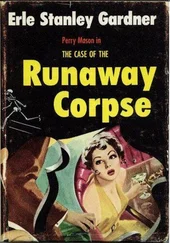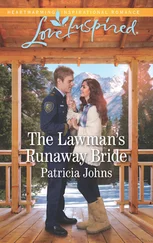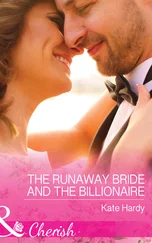John - The Runaway Jury
Здесь есть возможность читать онлайн «John - The Runaway Jury» весь текст электронной книги совершенно бесплатно (целиком полную версию без сокращений). В некоторых случаях можно слушать аудио, скачать через торрент в формате fb2 и присутствует краткое содержание. Жанр: Детектив, на английском языке. Описание произведения, (предисловие) а так же отзывы посетителей доступны на портале библиотеки ЛибКат.
- Название:The Runaway Jury
- Автор:
- Жанр:
- Год:неизвестен
- ISBN:нет данных
- Рейтинг книги:5 / 5. Голосов: 1
-
Избранное:Добавить в избранное
- Отзывы:
-
Ваша оценка:
- 100
- 1
- 2
- 3
- 4
- 5
The Runaway Jury: краткое содержание, описание и аннотация
Предлагаем к чтению аннотацию, описание, краткое содержание или предисловие (зависит от того, что написал сам автор книги «The Runaway Jury»). Если вы не нашли необходимую информацию о книге — напишите в комментариях, мы постараемся отыскать её.
The Runaway Jury — читать онлайн бесплатно полную книгу (весь текст) целиком
Ниже представлен текст книги, разбитый по страницам. Система сохранения места последней прочитанной страницы, позволяет с удобством читать онлайн бесплатно книгу «The Runaway Jury», без необходимости каждый раз заново искать на чём Вы остановились. Поставьте закладку, и сможете в любой момент перейти на страницу, на которой закончили чтение.
Интервал:
Закладка:
Angel returned in her bathrobe and lit a cigarette.
Twenty-seven
Pynex's defense of its good corporate name got off to a miserable start Wednesday morning, through no fault of its own. An analyst named Walter Barker, writing in Mogul, a popular weekly financial, laid two-to-one odds that the jury down in Biloxi would find against Pynex, and return a large verdict. Barker was no lightweight. Trained as a lawyer, he had developed a formidable reputation on Wall Street as the man to watch when litigation affected commerce. His specialty was monitoring trials and appeals and settlements, and predicting their outcomes before they were final. He was usually right, and had made a fortune with his research. He was widely read, and the fact that he was betting against Pynex shocked Wall Street. The stock opened at seventy-six, dropped to seventy-three, and by mid-morning was at seventy-one and a half.
The courtroom crowd was larger Wednesday. The Wall Street boys were back in force, each reading a copy of Mogul and all suddenly agreeing with Barker, though over breakfast an hour earlier the consensus had been that Pynex had weathered the plaintiff's witnesses and should close strongly. Now they read with worried faces and revised their reports to their offices. Barker had actually been in the courtroom last week. He'd sat alone on the back row. What had he seen that they'd missed?
The jurors filed in promptly at nine, with Lou Dell proudly holding the door as if she'd collected her brood after they'd scattered yesterday and was now delivering them back to where they belonged. Harkin welcomed them as if they'd been gone for a month, made some flat crack about fishing, then raced through his standard “Have you been molested?” questions. He promised the jurors a speedy end to the trial.
Jankle was called as a witness, and the defense began. Free of the effects of alcohol, Jankle was primed and sharp. He smiled easily and seemed to welcome the chance to defend his tobacco company. Cable waltzed him through the preliminaries without a hitch.
Seated on the second row was D. Y. Taunton, the black lawyer from the Wall Street firm who'd met with Lonnie in Charlotte. He listened to Jankle while cutting his eyes at Lonnie, and it didn't take long to connect. Lonnie glanced once, couldn't help it as he glanced again, and on the third look managed to nod and smile because it seemed like the proper thing to do. The message was clear-Taunton was an important person who'd traveled all the way down to Biloxi because this was an important day. The defense was now speaking, and it was critical for Lonnie to understand that he should listen and believe every word now being said from the witness stand. No problem with Lonnie.
Jankle's first defensive thrust was on the issue of choice. He conceded that a lot of people think cigarettes are addictive, but only because he and Cable realized he would sound foolish otherwise. But, then, maybe they're not addictive. No one really knows, and the folks in research are just as confused as anyone. One study leans this way, the next one leans another, but he'd never seen positive proof that smoking was addictive. Personally, he just did not believe it. Jankle had smoked for twenty years, but only because he enjoyed it. He smoked twenty cigarettes a day, by choice, and he'd chosen a lower-tar brand. No, he most certainly was not addicted. He could quit whenever he wanted. He smoked because he liked to. He played tennis four times a week and his annual physical revealed nothing to worry about.
Seated one row behind Taunton was Derrick Maples, making his first appearance at the trial. He'd left the motel just minutes after the bus, and had planned to spend the day looking for work. Now, he was dreaming of an easy payday. Angel saw him, but kept her eyes on Jankle. Derrick's sudden interest in the trial was baffling. He'd done nothing but complain since they'd been sequestered.
Jankle described the various brands his company made. He stepped down and stood before a colorful chart with each of the eight brands,each with its tar and nicotine levels labeled beside it. He explained why some cigarettes have filters, some don't, some have more tar and nicotine than others. It all boiled down to choice. He was proud of his product line.
A crucial point was made here, and Jankle conveyed it well. By offering such a wide selection of brands, Pynex allowed each consumer to decide how much tar and nicotine he or she wanted. Choice. Choice. Choice. Choose the level of tar and nicotine. Choose the number of cigarettes you smoke each day. Choose whether or not to inhale. Make the intelligent choice of what you do to your body with cigarettes.
Jankle pointed to a bright drawing of a red pack of Bristols, the brand with the second-highest level of tar and nicotine. He conceded that if Bristols were “abused” then the results could be damaging.
Cigarettes were responsible products, if used with restraint. Like many other products-alcohol, butter, sugar, and handguns, just to name a few-they could become dangerous if abused.
Seated across the aisle from Derrick was Hoppy, who had stopped by for a quick update on what was happening. Plus he wanted to see and smile at Millie, who was delighted to see him but also curious about his sudden obsession with the trial. Tonight the jurors were allowed personal visits, and Hoppy couldn't wait to spend three hours in Millie's room with sex the last thing on his mind.
When Judge Harkin stopped for lunch, Jankle was completing his thoughts about advertising. Sure his company spent tons of money, but not as much as beer companies or car companies or Coca-Cola. Advertising was crucial to survival in a fiercely competitive world, regardless of the product. Of course children saw his company's ads. How do you design a billboard ad so that it won't be seen by children? How do you keep kids from looking at the magazines their parents subscribe to? Impossible. Jankle readily admitted he'd seen the statistics showing eighty-five percent of the kids who smoke buy the three most heavily advertised brands. But so do adults! Again, you can't design an ad campaign that targets adults without affecting kids.
FITCH WATCHED ALL of Jankle's testimony from a seat near the back. To his right was Luther Vandemeer, CEO of Trellco, the largest tobacco company in the world. Vandemeer was the unofficial head of the Big Four, and the only one Fitch could tolerate. He, in return, had the perplexing gift of being able to tolerate Fitch.
They ate lunch at Mary Mahoney's, alone at a table in a corner. They were relieved by Jankle's success so far, but knew the worst was yet to come. Barker's column in Mogul had ruined their appetites.
“How much influence do you have with the jury?” Vandemeer asked, picking at his food.
Fitch wasn't about to answer truthfully. He wasn't expected to. His dirty deeds were kept from everyone except his own agents.
“The usual,” Fitch said.
“Maybe the usual is not enough.”
“What are you suggesting?”
Vandemeer didn't answer, but instead studied the legs of a young waitress taking an order at the next table.
“We're doing everything possible,” Fitch said, with uncharacteristic warmth. But Vandemeer was scared, and rightly so. Fitch knew the pressure was enormous. A large plaintiff's verdict wouldn't bankrupt Pynex or Trellco, but the results would be messy and far-reaching. An in-house study predicted an immediate twenty percent loss in shareholder value for all four companies, and that was just for starters. In the same study, a worst-case scenario predicted one million lung cancer lawsuits filed during the five years after such a verdict, with the average lawsuit costing a million dollars in legal fees alone. The study didn't dare predict the cost of a million verdicts. The doomsday scenario called for the certification of a class-action suit, the class being any person who had ever smoked and felt injured because of it. Bankruptcy would be a possibility at that point. And it would be probable that serious efforts would be made in Congress to outlaw the production of cigarettes.
Читать дальшеИнтервал:
Закладка:
Похожие книги на «The Runaway Jury»
Представляем Вашему вниманию похожие книги на «The Runaway Jury» списком для выбора. Мы отобрали схожую по названию и смыслу литературу в надежде предоставить читателям больше вариантов отыскать новые, интересные, ещё непрочитанные произведения.
Обсуждение, отзывы о книге «The Runaway Jury» и просто собственные мнения читателей. Оставьте ваши комментарии, напишите, что Вы думаете о произведении, его смысле или главных героях. Укажите что конкретно понравилось, а что нет, и почему Вы так считаете.












